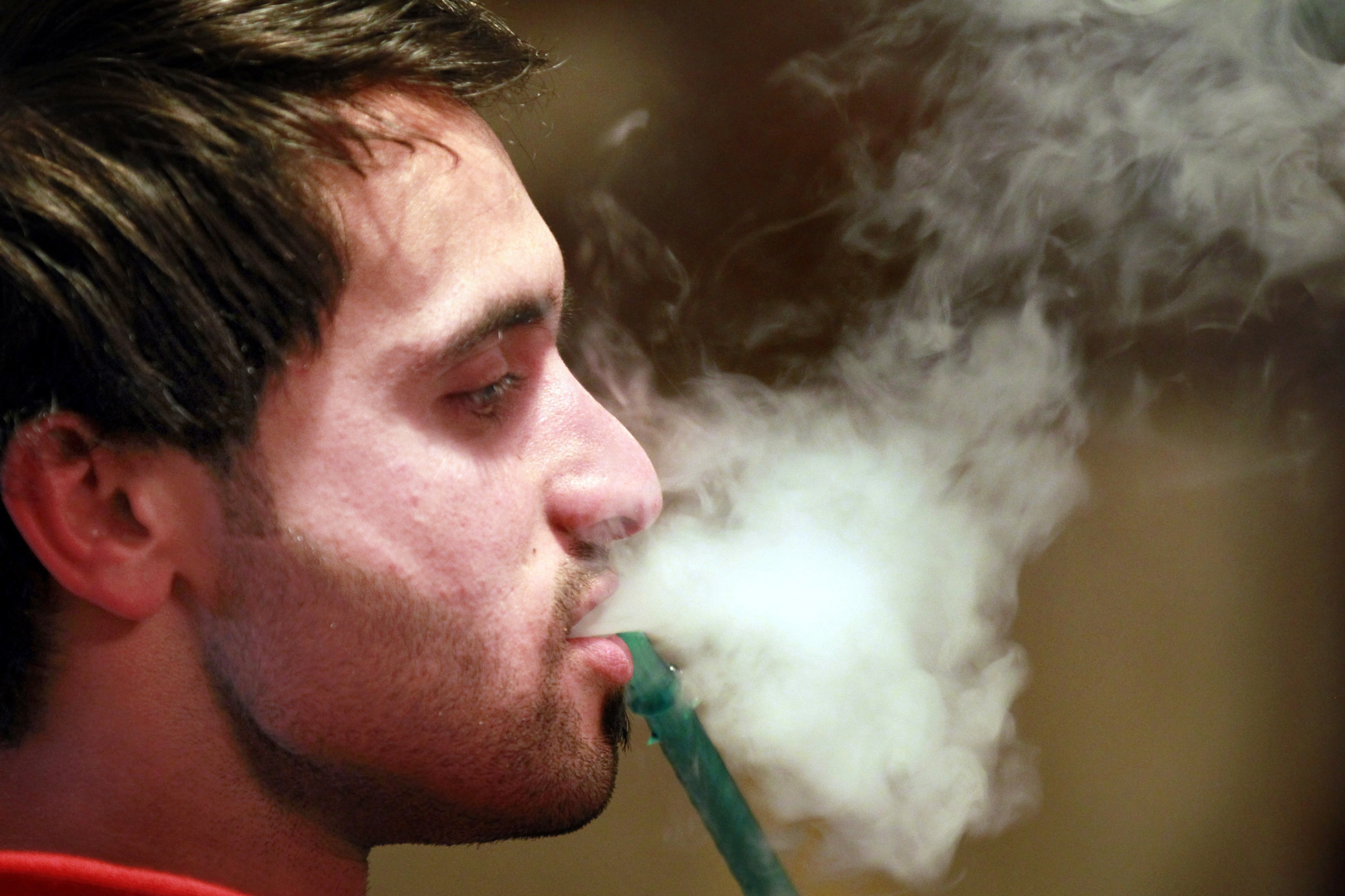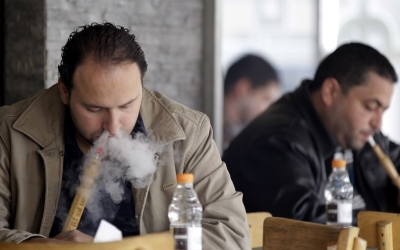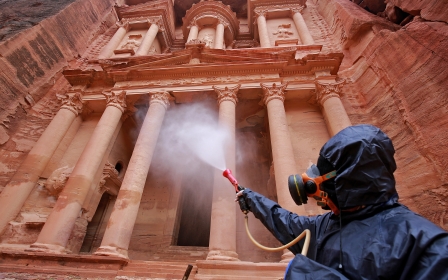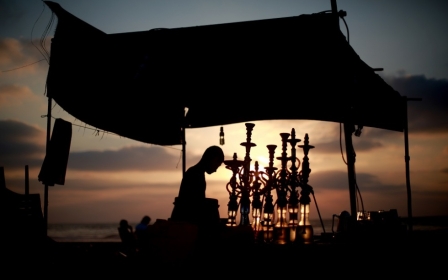Jordan tops global smoking rates, pushed by powerful tobacco firms: Report

Jordan has the highest smoking rates in the world, The Guardian reported on Tuesday, prompting public health officials in the country to blame the powerful lobbying of big tobacco companies.
According to a collaborative study conducted by the World Health Organisation (WHO) and the Jordanian government in 2019, more than eight out of 10 men in Jordan smoke or use nicotine products.
“The rates are dangerously high and a predictor of a future public health catastrophe,” Firas al-Hawari, a physician and head of the cancer-control office at Amman’s King Hussein Cancer Centre, told the British newspaper.
The recent research shows that Jordan has surpassed Indonesia, which has long been known to have had the highest consumption of tobacco in the world.
Jordanian men who smoke daily consume an average of 23 cigarettes a day, the survey found.
New MEE newsletter: Jerusalem Dispatch
Sign up to get the latest insights and analysis on Israel-Palestine, alongside Turkey Unpacked and other MEE newsletters
High numbers of both men and women in the kingdom also smoke water pipes - also known as shisha or arguileh.
Public health experts say the rise in smoking rates is largely due to the influence of big multinational tobacco companies that operate with a greater degree of freedom than in the West.
“These companies continue to exercise as much political power as they can in wealthy countries, but they’re more successful in lower-income countries where they face less transparency, can operate more in the dark and overwhelm whatever civic societies exist,” Rima Nakkash, an associate professor of public health at the American University of Beirut (AUB), told The Guardian.
Jordan ranks second in the world for tobacco company interference in its government, according to a study conducted by the international civil rights group Framework Convention Alliance.
International tobacco lobbyists have played a significant role in Jordan’s public health legislation, including being part of government debates on regulations for their products, which anti-smoking activists say is granting them too much power.
The tobacco lobby is also a significant contributor of public funds for various projects, such as refurbishing schools and running programmes for young people, the Guardian investigation revealed.
The WHO survey found that around 45 percent of Jordanian students aged 15 or under have used some form of tobacco.
Last year, the government imposed a 200 percent tax on e-cigarettes, vapes and accompanying paraphernalia.
But the rise in tobacco prices has been moderate over the years in Jordan.
In fact, in 2013, cigarette prices were lowered by the industry to encourage the habit. Analysts say the price point has a great potential to decrease consumption.
Tobacco firms' investments and jobs in Jordan are a boon in a country where unemployment is high.
According to current laws, smoking is banned in most public spaces, but implementation and enforcement are still a challenge.
Even in hospitals, schools and the Jordanian parliament, it has been difficult to eradicate smoking from the premises.
Tobacco taxes make up 18 percent of annual revenues in Jordan - meaning efforts to reduce consumption could have great financial implications.
Middle East Eye delivers independent and unrivalled coverage and analysis of the Middle East, North Africa and beyond. To learn more about republishing this content and the associated fees, please fill out this form. More about MEE can be found here.






